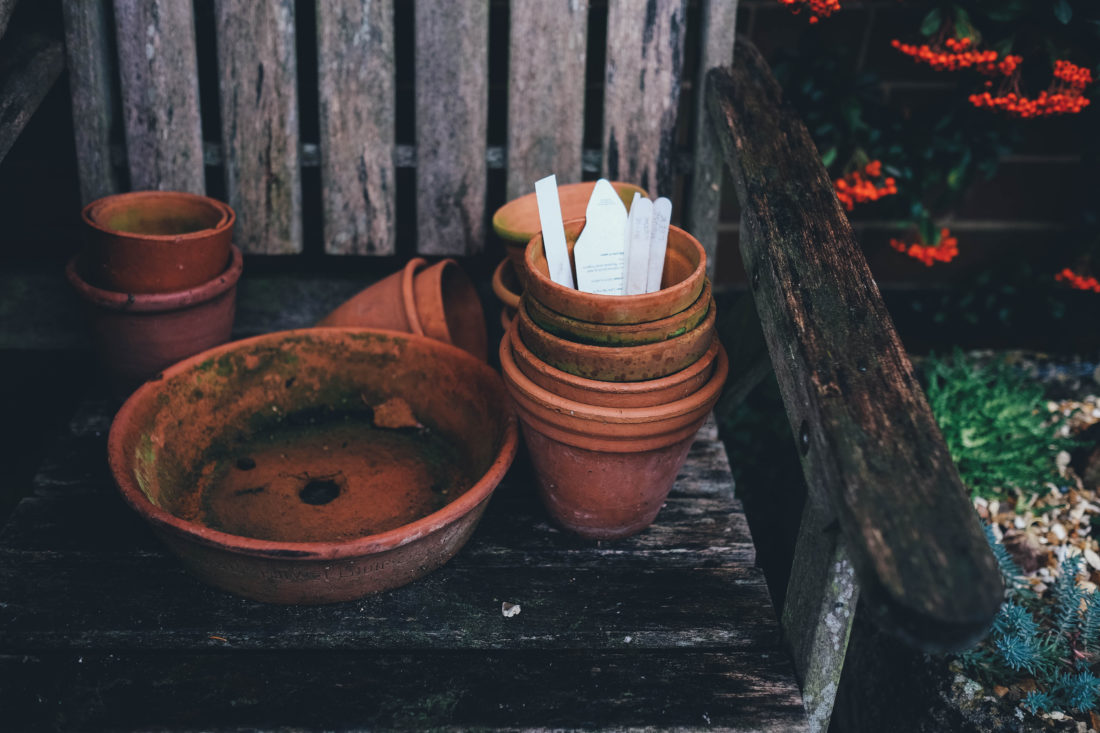It might surprise you to learn that food waste and garden clippings contribute to global warming. When they end up in landfill they produce methane gas, which is 25 times stronger than carbon dioxide. One council survey showed that around 33% of our household waste is food, including peelings, and 10% is vegetation from the garden. Turning waste into compost is a win-win solution. Composting benefits our air and soil, which means it is also good for us too.
Image credit: Unsplash Photos, Annie Spratt
How to make compost
Compost requires four key ingredients
#1 Green ingredients
Green waste provides nitrogen, which is essential to produce the organisms that oxidise carbon. These organisms stop the production of greenhouse gases.
Good sources of nitrogen are kitchen scraps, lawn clippings, tealeaves, coffee grounds and garden weeds.
Too many green ingredients can cause your pile to rot, rather than compost, so this is where brown ingredients help.
#2 Brown ingredients
Brown ingredients provide carbon, which produces heat to assist the composting process.
Good sources: autumn leaves, paper, sawdust (not from treated timber) and straw. Hedge clippings and branches need to be broken into smaller pieces to help with their breakdown process.
#3 Oxygen
Without sufficient oxygen your compost pile starts producing greenhouse gases. This is why you need to turn the mixture.
Turn the compost weekly with a garden fork, or alternatively you can place garden stakes or pipes into the pile to let in oxygen. Some composting bins are designed to be rotated to allow oxygen to penetrate all of the contents.
#4 Water
The pile needs to be moist but not too wet.
Also add some soil or completed compost to introduce additional micro-organisms. These help the composting process.
What not to compost
- Bones
- Cake and bread
- Meat and dairy foods
- Fat
- Diseased plants
- Weeds with seeds or underground stems
- Treated wood
- Large branches
- Manure from meat eating animals e.g. dogs and cats
- Magazines
Compost systems
- Use a resting garden bed. You might like to watch the composting segment from the ABC Garden Australia show.
- You can also buy a range of bins for your garden and kitchen waste. Garden centres and home hardware stores are a good place to do your research.
- If you live in an apartment or do not have a large back garden, then consider a Bokashi bin or similar type of indoor composting system.
Share the love
You can still compost even if you do not have your own garden. Local community gardens and school gardens always need compost and welcome donations.
Reduce food waste
Whilst I am a supporter of composting, the first step is to reduce waste. I recommend doing a food waste audit so you can assess what you are throwing out:
- Could food left overs be frozen or repurposed?
- Are you buying more food than you need?
- Would a weekly meal plan and shopping list help?
By reducing your food waste and composting, you are decreasing greenhouse gas production and helping to create a sustainable food supply.
The Eating for You book contains tips on
- Planning weekly meals
- Reducing food preparation time, money and waste
- Sustainable eating and living
Click here for more information on the Eating for You book
Compost References
